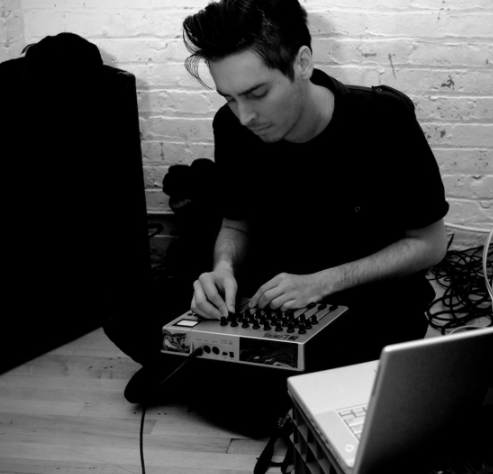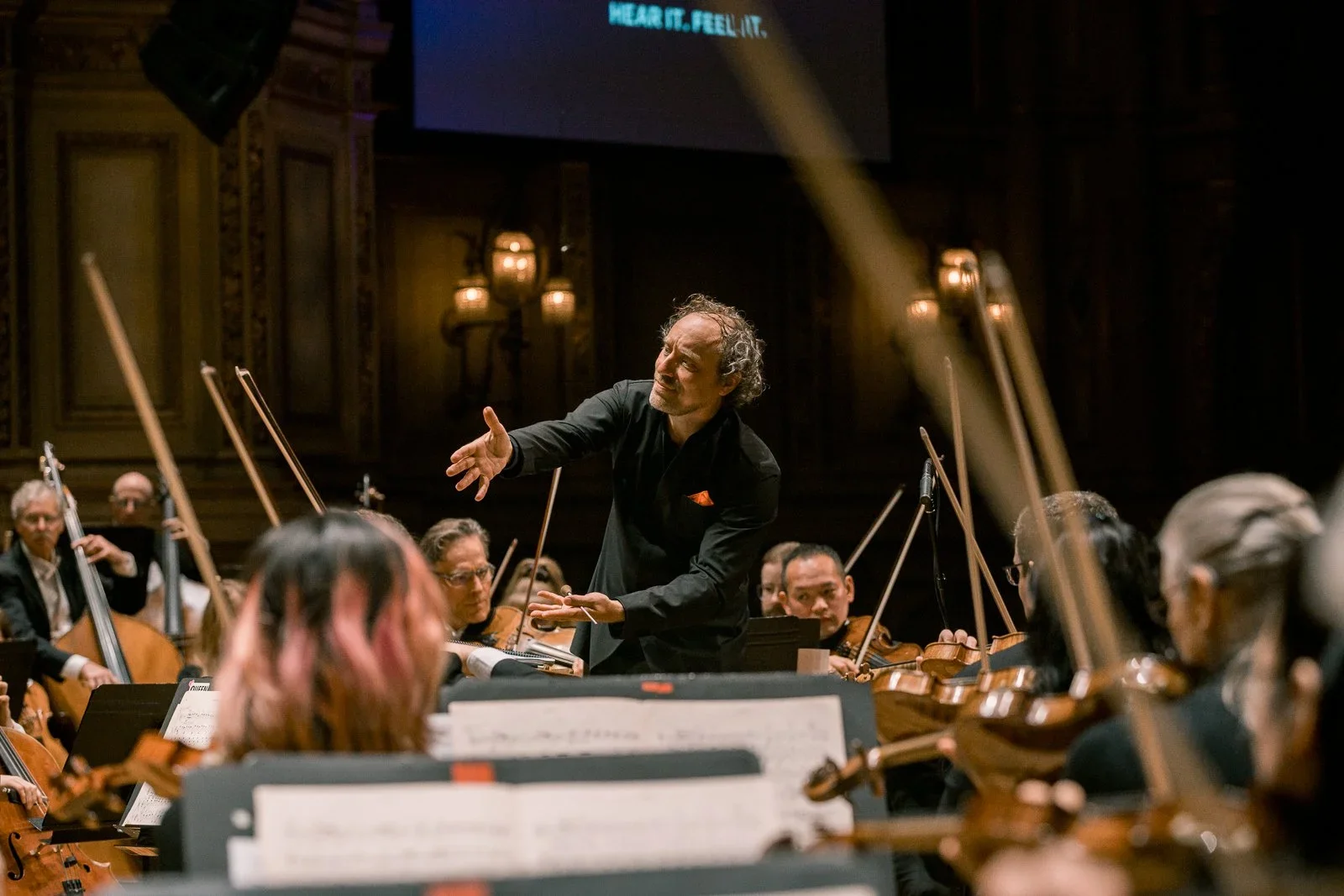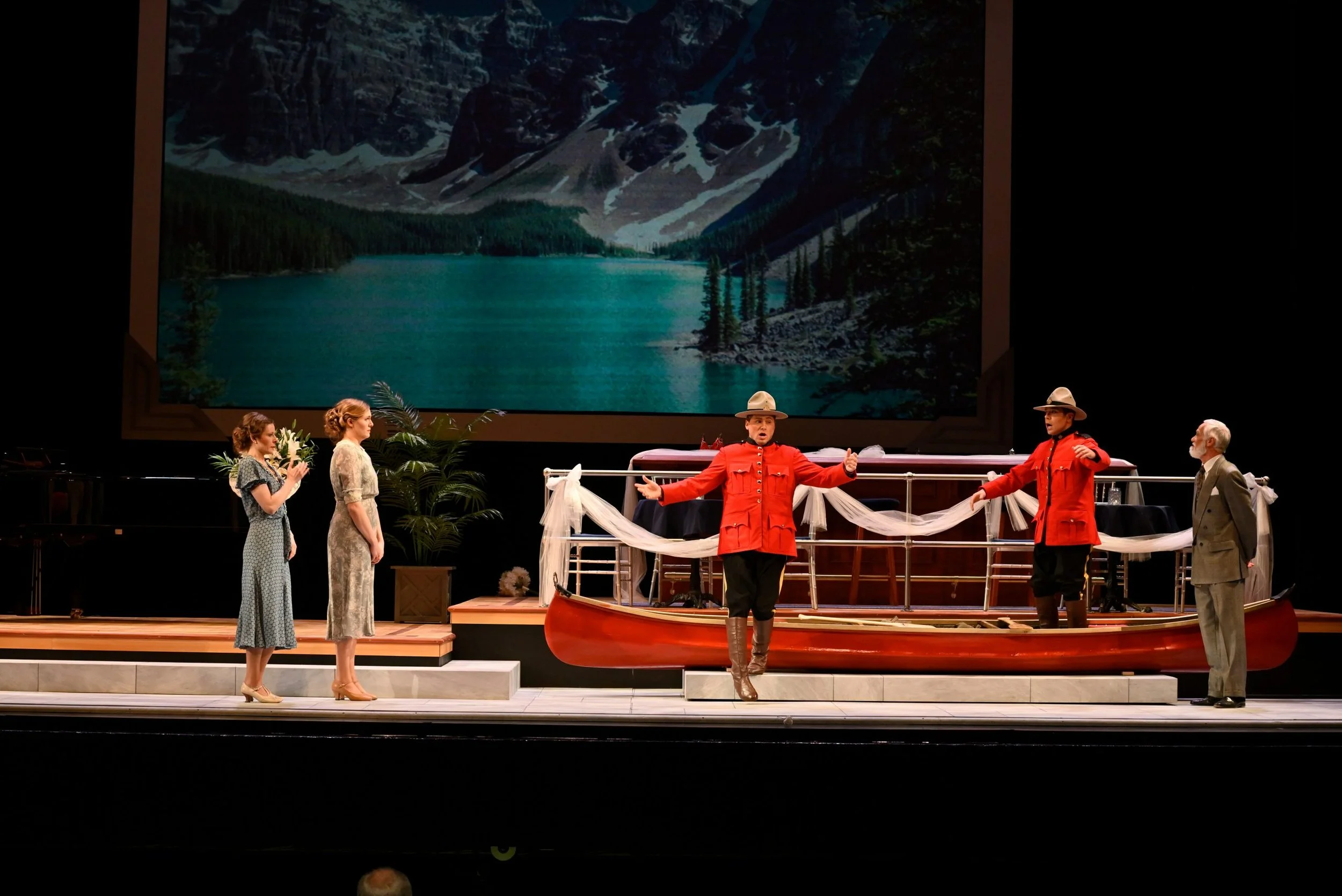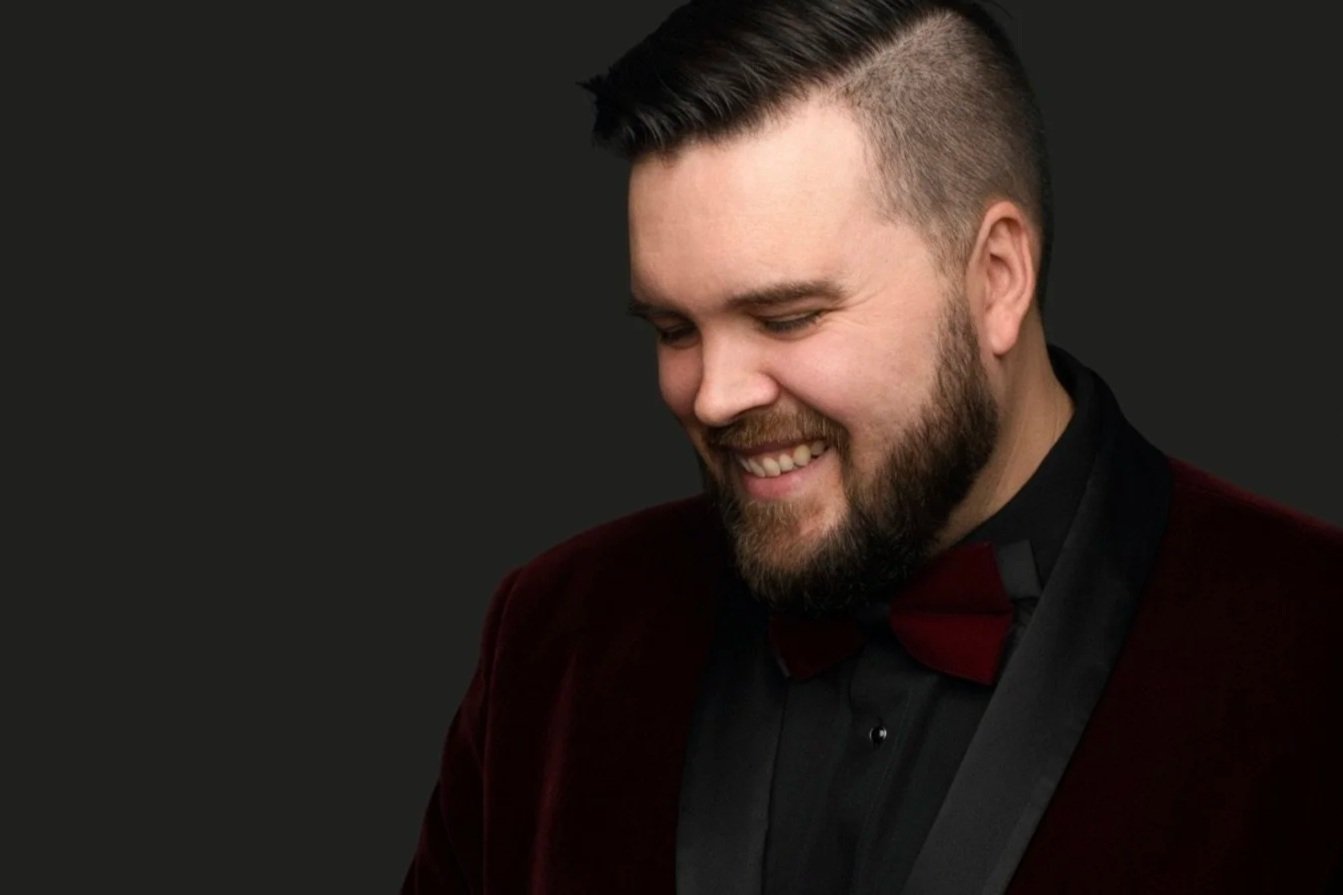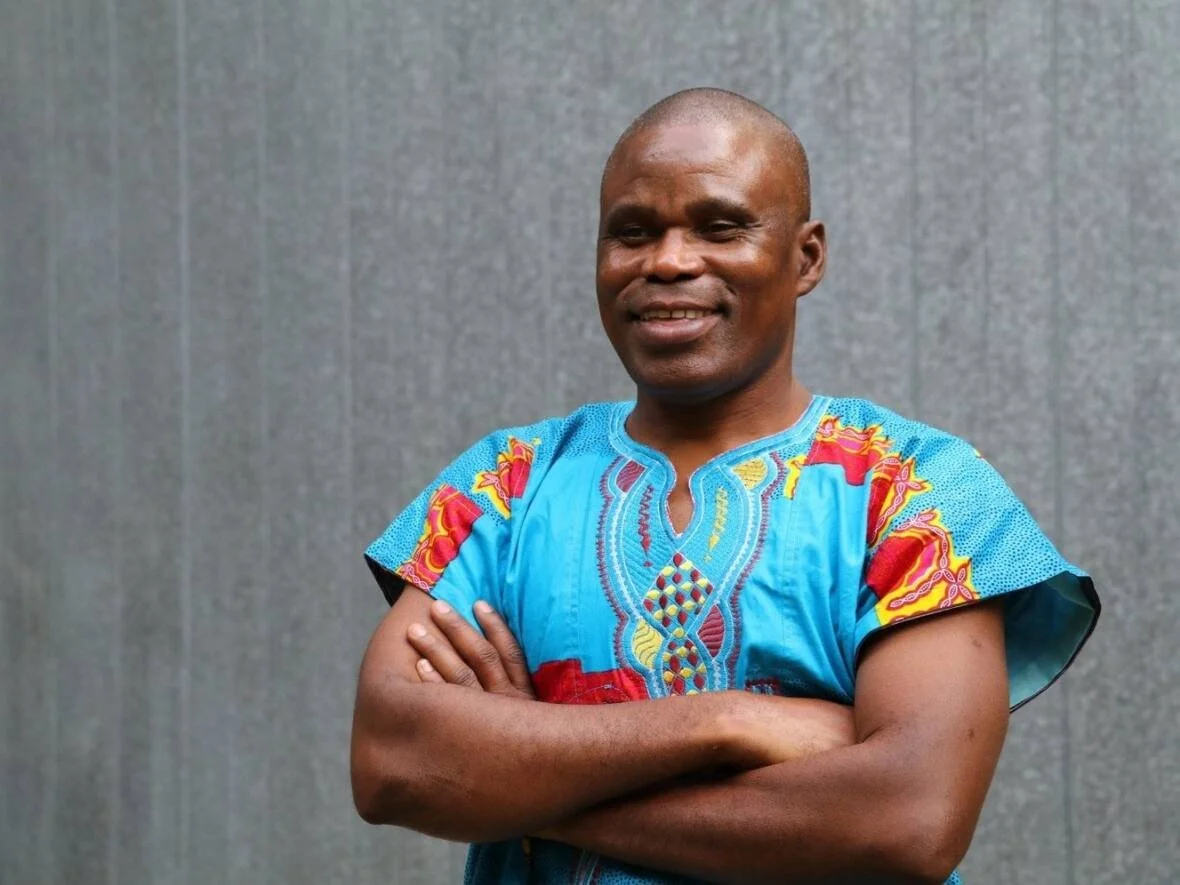Composer and avant-garde sparkplug Constantine Katsiris plays a last set before heading to Greece
At Vancouver New Music’s Letting Go farewell concert, fellow explorers join him in a structured game piece
Photo by Dafang Jiang
Vancouver New Music presents Letting Go at the Annex (823 Seymour Street) on Saturday (March 12).
FOR LOCAL PARTISANS of any number of musical micro-genres—noise, ambient, free improvisation, electroacoustic composition, electronica—the news that Constantine Katsiris is pulling up stakes must feel like they’re losing a friend.
Through his long-running Quiet City concert series, along with his Panospria record label, his own live-music adventures, and his personal passion for forging and keeping connections, the artist also known as Scant Intone has been a low-key but invaluable proponent of the new, the challenging, and the oddly beautiful. Often working against daunting odds to carve out space for resolutely uncommercial art forms, Katsiris is one of the reasons why Vancouver has yet to fully succumb to the dead hand of corporate music.
He’ll be missed.
And yet there’s another way to look at his departure: local performers are not losing an ally, but gaining an ambassador. In the next few weeks, Katsiris will be boxing up his microphones, mixers, and synths and moving to what he half-jokingly calls “the Old Country”, Greece. Where in Greece remains unclear, but it’s a sure bet that once he and his family settle, he’ll resume making music, making connections, and making friends.
“Everyone in my family immigrated to Canada in the ’60s and ’70s, and then in one generation it kind of flipped,” he explains from his car, after dropping one of his kids off at preschool. “A lot of my older cousins and aunts and uncles have moved back. They’re all family that I grew up with in Canada, and they’re the ones that chose the more relaxed life, not the rat race.
“I’ve been chipping away at my own move to Greece,” he continues. “I’m going to pack up my wife and two kids and transport our little family over to the motherland and kind of live a more small-town, rural life. I’ve been in Vancouver 15 years and Montreal before that for almost a decade, so I’ve had my fill, I think, of living in a big city. It’s like a weird switch went off in my brain, and I just feel like big cities, for me, are not my speed anymore.”
The Katsiris clan might choose the idyllic north shore of Crete for their ultimate destination, or follow family connections to Greece’s southernmost peninsula, the Peloponnese. And wherever they land, one of the first things he’ll unpack is his list of musical contacts, which extend far beyond the Vancouver underground.
“I’m working on a website for a booking agency, so I hope to be the point man over there for a lot of my colleagues,” he says. “I mean, I’ve booked tours all over Europe, but I’d like to concentrate on small legs of tours—like, if someone’s already booking a European tour, I could help them out in the Balkans, say, or across the Mediterranean countries.
“I hope to build kind of a trans-Atlantic bridge, so I can see some of the people that have become quite dear to me over the last few years—connect the dots, bring them over, and show them some hospitality. That’s just one of the things that I’ve got in my mind, anyway, as a way of continuing my work here over there.”
Before Katsiris leaves town, however, Vancouver New Music is hosting a kind of festschrift for the composer, improviser, and avant-garde sparkplug. In Letting Go, he’ll get to play a last set of his often contemplative and sometimes abrasive solo music, and then invite an eclectic quartet of fellow explorers—second-generation ambient composer Joda Clément, vintage-electronics specialist Sara Gold, pianist and coder Alanna Ho, and clarinet virtuoso François Houle—to join him in a loosely structured game piece, Post-Hypnotic Suggestions.
“Basically I’m going to trigger the playing of the other musicians with specific sounds that’ll be assigned to them,” Katsiris explains. “So when they hear ‘their’ sound—a sound that I’ll play that’s assigned to them—they’ll begin to play, and as the next members of the quartet are called in, the people already playing will play a bit more sporadically or quietly or subtly, until the full quartet is in play. And then we’ll have a last movement where we do a by-ear improvisation—maybe not with everybody playing at once, but that’s kind of the idea. And then kind of a denouement, or finish.
“I told the players ‘Don’t bring everything and the kitchen sink, but try to slim it down to some more specific instrumentation or a more specific sound palette,’” he continues. “And then I left the ball in their court, although I said I would be able to consult over the next week, if they’re thinking ‘What am I going to do? Am I going to do the marbles in then glass bowl with water, or am I going to do the live-coding thing, or am I going to use the looper pedals or the drum machine?’ I’m leaving it up to the artists, so I’m also curious to see how that’s going to fit together once everybody is in the space. I’m not sure if any of them have ever played together, so this is going to be something new and interesting for me, and hopefully for all of them, too.”
Intriguingly, Post-Hypnotic Suggestions not only illustrates a musical ethos that accommodates surprise, interplay, and diversity, it also mirrors Katsiris’s approach to building a cultural community.Quiet City, in particular, embodied the rhizomatic principles of interconnectedness and organic growth, and while it’s a shame the series is ending, the underground roots Katsiris has nurtured are no doubt vital enough to cross any ocean.


